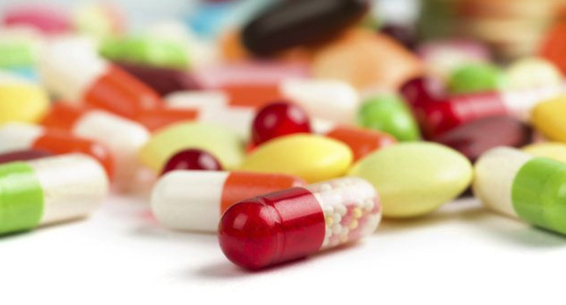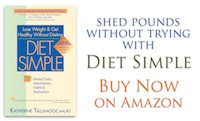The Vitamin Supplement Everyone Should Be Taking
- At February 26, 2018
- By Katherine
- In Articles, News
 0
0

My philosophy has always been to get your nutrients from food, not vitamin supplements. I base my advice on the body of scientific evidence finding significant negative effects, or no effects – of vitamin and antioxidant supplementation (starting with a gound-breaking study published in the New England Journal of Medicine finding antioxidant supplements had such negative effects on the subjects, it had to be halted early). Accordingly, nutrition professionals are cautious before making recommendations, as they should be. In fact, one way to smoke out a “quack nutritonist” – someone unqualified to practice nutrition – is learning that they’re selling supplements.
That’s not to say that some supplements aren’t useful. When personalized to fit your needs, some may be beneficial – even critical – for your health. Nonetheless, taking supplements cannot substitute for the benefits of eating the nutrients in food … except for one.
The need for this supplement started revealing itself a couple of decades ago. Children, and some adults, began exibiting symptoms of a life-threatening deficiency disease, one we virtually hadn’t seen since the turn of the 20th century, when 60 to 80 percent of children suffered from it. Subsequently, the disease was mostly iradicated by supplementing food. Nutritionists determined what was needed in the food supply based on lifesyle and consumption patterns in that era, and this calculation prevented the defiency disease … until now.
Why is food supplementation no longer working? Modern technology, changes in food consumption patterns and in lifestyles. These same changes in American life have created many health discoveries. Sometimes you don’t know the value of something until it’s missing! Not only have we experienced an outbreak of the deficiency disease, we uncovered many more negative effects of its inadequacy, and thus, reasons why this nutrient is paramount to health.
Vitamin D is a nutrient taken for granted for millions of years because we got enough of it naturally from the sun. But increasingly, Americans are not exposed to sunshine. We spend most of our time indoors on our computers or in our cars. When we venture outside we’re using sunscreen, which blocks not only harmful ultraviolet (UV) rays which cause skin cancer, but also prevents the skin from absorbing the UV rays necessary for producing Vitamin D in our bodies.
Vitamin D deficiency has caused unexpected consequences. It is a hormone present in almost all of your cells. Its effects are vast. We learned definitively in the early 20th century that its deficiency causes soft bones (rickets) which literally bow a child’s legs because they can’t hold up his/her weight. Further, new research is finding its deficiency may increase your risk for autoimmune diseases such as diabetes, also cancers, heart disease, infectious diseases, schizophrenia, multiple sclerosis, Parkinson’s disease. You get the picture… It’s a big deal!
Because there is very little in food, adding 100 IUs of vitamin D to a cup of milk since the 1930s has prevented rickets successfully until today’s lifestyles changed the predicted amount of sun exposure and milk consumed. And because vitamin D deficiencies seemingly vanished, we were unaware of how contributory it was to health.
The prevailing National Academy of Sciences Food and Nutrition Board recommendation for vitamin D has been 400 IUs daily. Today, it’s unclear how much vitamin D each person needs to take because of variable sun exposure. But there seems to be a consensus among vitamin D scientists that blood values should be at least 50 ng/mL and there seems to be no benefit of going higher than 75 ng/mL (though most medical labs consider 30 as adequate). My clients take anywhere from 1,000 IUs to 4,000 IUs (the safe upper limit – UL) daily to achieve 50 ng/mL. Recommendations for sun exposure vary, but in general, it’s been recommended that careful exposure of the hands, arms and face 2 to 3 times a week for 15 minutes is probably sufficient (Res Medica, Volume 268, Issue 2, 2005). But talk to your doctor about your individual needs.
Vitamin D, a fat soluble vitamin which is stored in your body, can be toxic when too much supplement is taken. Though, natural sources in food and from the sun cannot cause overdoses. In Europe in the 1950s, cases of soft tissue, heart and brain calcification, leading to mental retardation and other birth defects, were discovered to have been caused by excessive vitamin D added to the food supply. Ergo, supplementation has since been removed or scaled back in Europe.
Just like all nutrients, it’s important not to get too little – or too much. I call it the “Goldilocks effect,” because it needs to be “just right!”
For more fabulous tips and simple, effective ways to lose weight,
buy her book, Diet Simple!









